I just saw the Barbie movie and I haven’t been able to stop thinking about it, and while it revolves around the iconic doll, it says so much more about us than it does about her.
In the first few minutes of the film, as I watched Margot Robbie shamelessly flaunting her hyper-feminine figure and characteristics with feminist flair, I felt elated, but also captious. Could one of the most long-standing symbols of sexism become a beacon for female empowerment overnight, because Greta Gerwig?
Like many other female journalists, when I saw Mattel attempt a Barbie rebrand I was skeptical. Over the last few years, I’ve been incessantly pitched by various PR firms to write about how Barbie offers a model of ambition for young girls and women. I never bought into it. Growing up, my parents refused to even buy me a Barbie because of the influence they feared overly feminized toys would have on me. Barbies were essentially contraband in my house. They couldn’t be bought— only acquired (as handy-downs from neighbors or friends) so I went into Gerwig’s film a bit wary.
But as Robbie presented an air-tight argument of a Barbie matriarchy where all the jobs and the decision-making is done by women with a Black female president to boot, my skepticism started to fade. When I realized that in Barbie’s universe, all the Supreme Court justices were female and that the White House was bright pink because female lawmakers were in charge, I realized Barbie was living the feminist utopia I had always dreamed of. Just because she was a doll, and that she leaned into her femininity completely, it didn’t mean that she wasn’t living her life according to pro-woman principles. The cherry on top of this gender-stereotype-shattering sundae is that in Barbie’s world, men adorably just “do beach” which means that they’re first and foremost, loving supportive characters to their ambitious female counter-parts. As Ryan Gosling, who plays Ken in the movie admits, Ken isn’t even a lifeguard (that’s a woman’s job!) and his only purpose is to champion Barbie.
How could it be? Was Barbie feminist this whole time? Was I just too busy swimming in the sea of my own internalized sexism to see it? Similarly to the Britney Spears doc that revealed our own chauvinistic preconceptions about the popstar, Gerwig’s cinematic masterpiece made me question if I had been hard on Barbie precisely because she was a woman.
As I stewed in the soup of my own sexist bias, I also started to notice there’s a lot that’s wrong with Barbie that’s conveniently swept under the rug in a movie that was admittedly produced by the corporation that makes billions in profit from selling her. Even though I began feeling compassion for her, Barbie isn’t a person, she’s a product that was manufactured to exploit our insecurities. The problem with Barbie when I was growing up wasn’t that she was ambitious, it was that she was giving children eating disorders. To her credit, Gerwig somewhat addresses this, and her casting of diverse shapes and sizes clearly begs to differ, but there’s never a substantive acknowledgment of the damage this toy created for a generation of girls.
After all, if Barbie was a human woman, she wouldn’t even look like Margot Robbie, (who is already pretty unachievable) she would be 5ft9 and 110 pounds. According to the South Shore Eating Disorders Collaborative (SSEDC), she would “fit the criteria for anorexia.” At a staggeringly low BMI of 16.4, she probably wouldn’t menstruate and would have to crawl on all fours to get around. And it’s not even like her weight was ever hidden. When Mattel released Slumber Party Barbie, SSEDC reports that “she came with a bathroom scale permanently set at 110 lbs and a book entitled “How to Lose Weight” with directions inside stating simply “Don’t eat.” While this was in 1965, one plastic surgeon in New York has already been using the new movie to brand and promote a constellation of surgeries to achieve Barbie’s body. So yeah, Barbie might be going through a well-calculated corporate rebrand, but she has some skeletons in her fluorescent fuchsia closet.
And while I delighted in the movie’s embrace of the hyper-feminine, and that it made me reflect on how I can participate in our society’s sexist derogation of it, the overall feminist takeaway of the movie was deeply distorted. The biggest oversight in my opinion is that the matriarchal system that’s presented in the film is one that ultimately marginalizes men. It upholds a flawed view of feminism, one that is often circulated by its detractors, where the goal is assumed to be the subjugation of men. This bogus girlboss take on female empowerment is about women doing what men have done to them, but true feminism is actually about dismantling those power structures and hierarchies altogether. In a true feminist world, Ken wouldn’t be relegated to "doing beach” and women wouldn’t be burdened with every single job! The feminist fantasy in the Barbie movie is a patriarchy that’s simply flipped. The movie suggests that in order for one gender to win, the other one has to lose, which is a myth created by the patriarchy. I worry the movie may be popularizing a dangerously distorted version of feminism that puts men down, when true feminism doesn’t put men in subservient roles— it sets them free.
To be fair, towards the end of the movie, Barbie offers something closer to this vision of freedom when she apologizes to Ken for treating him as lesser (individually, not to Kens as a group) and suggests that he define his own identity without her, leading him to later sport a hilarious hoodie that reads “I am Kenough.”
The path Ken is encouraged to go on is akin to the conversation that many of us have been prompting men to have about reimagining their own masculinity, and is what I was attempting to create with For The Love of Men. But this interaction stands in sharp contradiction with the entire premise and philosophy of the movie. This moment of compassion towards men is interrupted when one of the Kens asks if this means men can be on the Supreme Court now, and he’s told he could pursue a smaller lower court role. This suggests that the goal is not to win with men, but to get even with them.
This vengeful definition of feminism is certainly enticing given how violently the cards are stacked against women, but I fear it simply gives more ammunition to those who want to discredit gender equality altogether. The movie offers false proof that feminism impairs men, when in fact no other social policy would collectively benefit them more. My concern is that it reinforces the concept of the gender war, which isn’t feminist at all, and is just inherently another product of the patriarchy.
Now don’t get me wrong… I still loved the Barbie movie and I’ll probably go see it again. It’s not a women’s studies paper, it’s a blockbuster film, and Greta Gerwig does a masterful job of weaving extremely complicated topics in such a fun format. The Barbie movie is a radical film and the fact that it already has such mass appeal is worth celebrating. It’s a delicious film that’s entertaining and aesthetically decadent, rewriting the history of one of the most controversial toys of all time. It’s a mirror revealing the sexism of our present day selves, and how our past selves were more misogynistic than we dare to remember. It challenges us to name the problem, so that we can come up with better solutions. I’m grateful it exists and that I get to talk about it with you, and I’m looking forward to your smart thoughts on it too!
And before I go, I wanted to tell you about an amazing and timely book that friend of Airplane Mode Mattie Kahn wrote about the revolutions that girls are powering around the world. Fittingly, Mattie actually just wrote a magnificent piece for The New York Times about Gretchen Whitmer rebranding herself as “Governor Barbie.” I recommend that you read anything Mattie has ever written and that you grab a copy of her new book Young and Restless: The Girls Who Sparked America's Revolutions. She’s an extraordinary writer and beautifully captures the untold history of the girls that have shaped our world as we know it. It’s the perfect great summer read and a wonderful chaser for the Barbie movie!
I hope you are having a great weekend x
Liz-


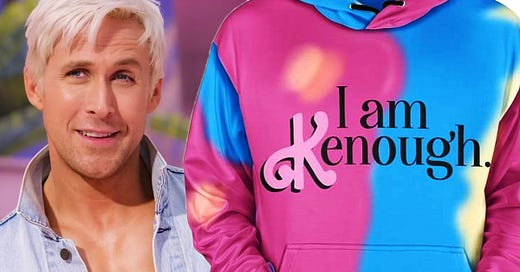


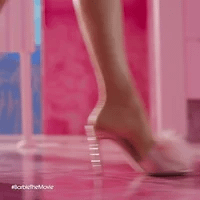
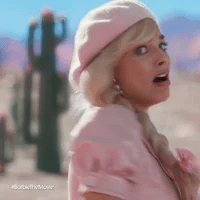
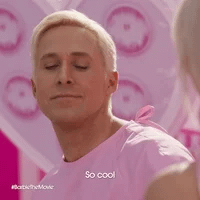

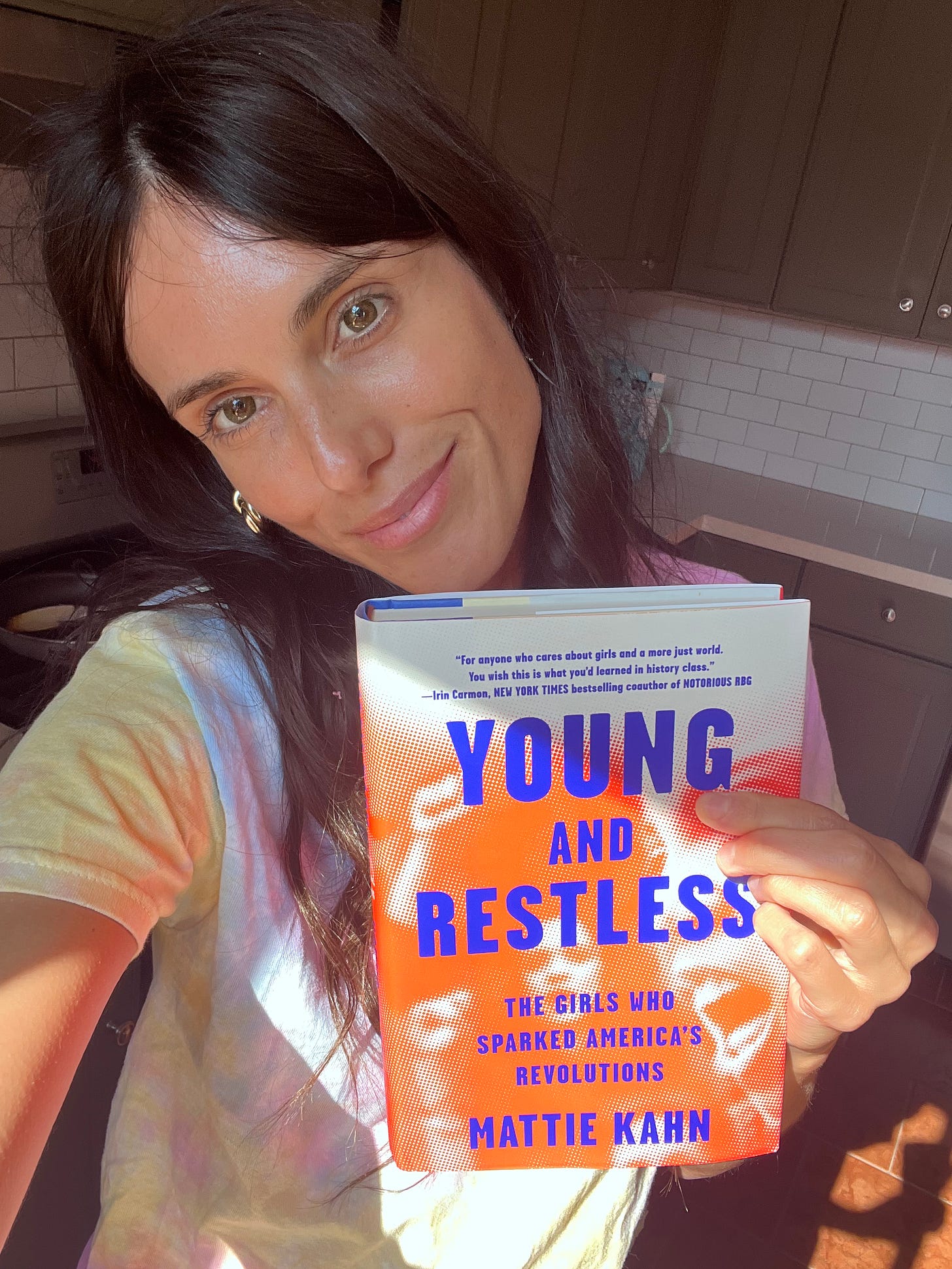
I really appreciate your take on the film. It was so fun, if not pretty messy, and I'm excited to see it again too. Regarding the matriarchal gender imbalance that they choose to maintain at the end, I saw that as a conscious choice on Gerwig's part. When the Kens ask if they can be on the Supreme Court, the president says something like "when women have equal representation in the real world, then men can have it here". I took that to mean that Gerwig isn't trying to make Barbieworld a full feminist utopia but rather a salty flip on patriarchy. I wasn't too surprised: I'm often looking (and longing!) for feminist pop-culture and fiction to paint a true egalitarian vision for the future in which all genders are valued but they almost always fall short. We're still struggling to figure it out as a society. But I agree that I would've liked to have seen Ken have a stronger ending, for the film makers to dig a little deeper into a vision of positive masculinity. Maybe in the sequel... ;)
I had similar negative views of Barbie and all things pink, feminine, aesthetic, "unserious," and "indulgent" growing up. Totally agree with your point that this is an indictment of internalized sexism.
Regarding the zero-sum premise of the gender flip: That's the point! It's not arguing that men need to be subjected to the inverse of patriarchy for things to be fair. Rather, it highlights how gross sexism is, and how what we're wanting is equality and freedom for everyone, by flipping it in satire. Maybe that needs to be made clearer to some anti-feminists, but honestly, they're already going to misinterpret things in order to use them to argue against equality and play the victim.